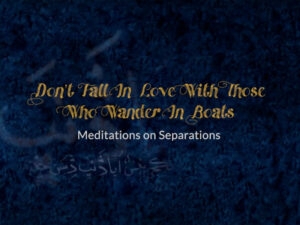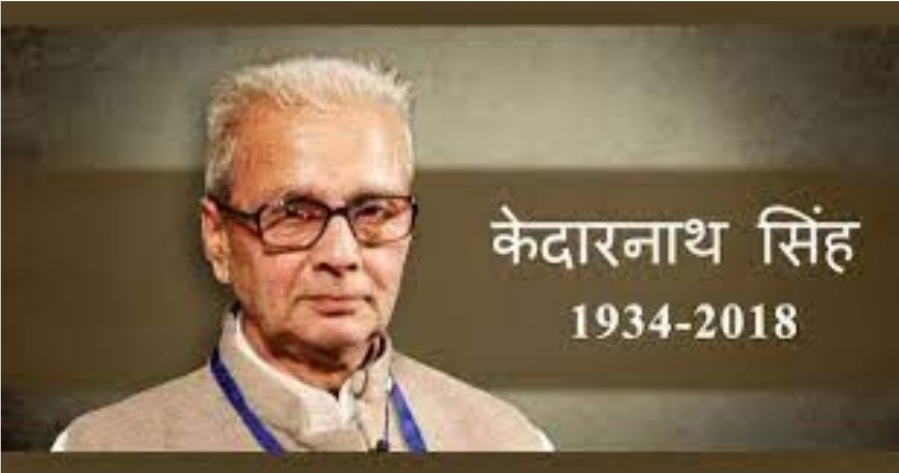Don't Fall In Love With Those Who Wander In Boats
This movie by the national - award - winning documentary director Shabnam Virmani is a beautiful mesh wrought with folklore and Love. This documentary takes us to Eighteenth Century when the poignant and ecstatic verses of Shah Abdul Latif Bhitai resonated through out Sindh. Having been inspired by this National Poet of Sindh, Shabnam Virmani and her crew attempted to animate the colossal body of Oral Tradition which formed a major part of Sindh poetic corpus. Shah Abdul Latif was a Sindhi Sufi Poet-Saint whose indulgence and close associations with Sufis and Yogis from an early age ensued the spiritual outpour evident in his verses. His pious later life was also an outcome of the pre mature death of his wife. The profundity of his poetry became known to people by Oral utterances yet his disciples collected the works and published as "Shah Jo Risalo" in 1866. Latif brought forward the legacy of Sufi Poetry. Though he was believed to be an illiterate, the presence of Arabic,Persian and the influence of Persian poet Rumi on his thought shows that he is well-educated. The love in him bloomed when he was at the threshold of his youth. As expected, his love saga with an aristocratic girl was met with much defiance from the latter's family. This love and the ensued heart ache had an immense impact on the budding poet. Love which should have been a warm fireplace burned like embers in his agonized heart which made the impulsive Latif to sentence himself to a life of wandering and out of this rage was born the poet-Shah Abdul Latif ! Eventually, the storm passed by and Latif and his beloved Saida Begum were united in a wedlock. Fate had much worser tidings in store for him... He was deprived of his never-failing companion-his wife. This incident made him choose a spiritual path hereafter.
"One palace, one million doors
Countless windows in between
From where ever I look
The beloved is before me."
As mentioned earlier this film is an enchanting amalgam of Folk Tale and Ethereal Love which was one of the major motifs of Latif's poetry. This movie's prime focus was on the love cherished by the Vanjaras and their beloved Vanjariyaan. The sea traders who were obliged to sail abroad to earn their livelihood are called Vanjaras and the wives of these sea farers are called Vanjaariyan. These men who left land in the tumultous waters on fragile boats with absolutely no safety measures seldom returned. Their wives would pine and wail for their men who never come...This is, precisely, why Shabnam cautions young women not to fall in love with wandering voyagers. These pangs of separation reverberates in Latif's "Sur Samundi."
" In these days of my youth
my love has set sail
I weep
but my love doesn't stay
mother,what can I do?
allah,I am stranded,burning.
as though on a pyre
my beloved gypsy
has gone away."
The film also recounts the saga of a newly-wedded girl who doesn 't want to part with her beloved who became enshrined in her heart. She knew the man had to leave sooner or later yet she wished to detain him atleast till the Epithalamion fades... She implored him to stay for a night. Perhaps her supplication can never get materialized since the man had to earn his bread by going abroad. This tale was accompanied by a melancholic music which accentuates the agony imparted by the story. Why would the girl have chosen the man whom she knew would leave shortly? Perhaps owing to the sedation of Cupid's arrow! She might have "fallen" in love with this wandering voyager then tried to suppress her fancy for him but to no avail. Peraps the more she hated him,the more he made her regret her decision. The more she banished him from her thoughts, the more he made inroads into her dreams. The more she resisted his charm, the more he enticed her! Eventually she embraced the poignancy of loving a man who wander in a boat! The movie also talks of the love cherished by the compatriots who were seperated by Radcliffline. The fraternity formed by Sir Cyril Radcliff, Nehru and Jinnah succeeded in separating the brethren physically but failed to erase the love they nurtured for each other. Many of them tresspassed the boundaries in search of their beloved ones and much loved brothers. This search like many other tragic searches hardly yielded fruits. Of Brotherly Love, Shakespeare says that every brother is "like a drop of water that in the ocean seeks another drop." Love hurts, yet people perpetually fall in love! That's the magic therein...
-Santhwana Thomas






Comments
Post a Comment